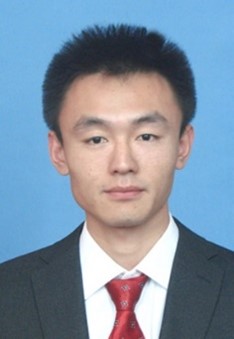
教授,博导,1988年生,工学博士。加拿大滑铁卢大学访问学者,吉林大学唐敖庆青年学者,入选第四届中国科协“青年人才托举工程”。《SAE International Journal of Vehicle Dynamics, Stability, and NVH》副主编,《International Journal of Vehicle Design》客座主编。研究方向为智能汽车运动控制;智能汽车状态感知、决策与规划;节能与新能源汽车;车辆动力学与控制;智能轮胎。主持国家自然科学基金青年基金及面上基金项目、中国博士后面上资助及特别资助项目;国家自然科学基金重大项目课题子项负责人;作为项目骨干参加中国汽车产业创新发展联合基金项目2项;参加中国工程院重大咨询项目“制造强国战略研究”项目。在Materials Today(26.943)、IEEE T-SMC(IF 13.451)、Applied Energy(IF 8.426)、MSSP(IF 6.471)、IEEE T-ITS(IF 6.319)、VSD(IF 2.581)等“车辆动力学与控制”权威期刊发表论文40余篇。2017年获得吉林省自然科学奖一等奖(6/10)、中国汽车工业技术发明奖一等奖(5/6)。入选2021年度“吉林大学优秀青年培育计划”,“吉林大学励新优秀青年教师培养计划”重点培养阶段(2018年度)和精英培养阶段(2021年度)。
工作经历:
2021/09-至今,吉林大学汽车仿真与控制国家重点实验室,车辆工程,教授
2016/09-2021/09,吉林大学汽车仿真与控制国家重点实验室,车辆工程,副教授
2019/09-2020/09,加拿大滑铁卢大学机械与机电工程系,访问学者
2014/10-2019/01,吉林大学通信工程学院,控制理论与控制工程,博士后
2013/05-2016/09,吉林大学汽车仿真与控制国家重点实验室,车辆工程,讲师
教育经历:
2009/09-2012/12,吉林大学,车辆工程,博士
2007/09-2009/07,哈尔滨工业大学,车辆工程,硕士
2003/09-2007/07,哈尔滨工业大学,交通运输,学士
主要研究方向:
智能汽车运动控制;智能汽车状态感知、决策与规划;节能与新能源汽车;车辆动力学与控制;智能轮胎。
主要科研项目及研究平台:
1. 国家自然科学基金重大项目,61790560,极限工况下汽车主动安全协同控制及应用验证,2018.01-2022.12,直接经费1739.2万元,运行,子题负责人
2. 国家自然科学基金面上项目,51875236,智能轮胎胎/路参数估计及四轮驱动电动汽车轮胎力最优分配控制,2019/01-2022/12,直接经费60万,运行,主持
3. 国家自然科学基金联合基金项目,U1664257,四轮驱动电动汽车底盘系统动态协调控制机制与能量优化管理,2017/01-2020/12,234万元,运行,项目骨干。
4. 国家自然科学基金联合基金项目,U1564213,智能汽车行驶动力学建模与多目标优化控制技术,2016/01-2019/12,270.98万元,运行,项目骨干。
5. 国家自然科学基金面上项目,51675217,磁流变阀控半主动悬架汽车瞬态动力学特性及协调控制研究,2017/01-2020/12,直接经费62万,运行,项目骨干。
6. 国家自然科学基金青年基金项目,51405185,胎面橡胶摩擦机理及复杂工况下轮胎力学特性研究,2015/01-2017/12,25万元,结题,主持。
7. 国家自然科学基金青年基金项目,51205155,磁流变液挤压流动机理及磁流变挤压阀式减振器特性研究,2013/01-2015/12,25万元,优秀结题,项目骨干。
8. 中国科协项目,3D5203558462,2018-2020 年度青年人才托举工程项目,2018/05-2021/05,45万元,运行,主持。
主要学术成果:
[1] Xu N, Hashemi E, Tang Z, et al. Data-Driven Tire Capacity Estimation With Experimental Verification[J]. IEEE Transactions on Intelligent Transportation Systems, 2022.
[2] Askari H, Xu N, Barbosa B H G, et al. Intelligent systems using triboelectric, piezoelectric, and pyroelectric nanogenerators[J]. Materials Today, 2022, 52: 188-206.
[3] Xu N, Askari H, Huang Y, et al. Tire Force Estimation in Intelligent Tires Using Machine Learning[J]. IEEE Transactions on Intelligent Transportation Systems, 2022, 23(4): 3565-3574.
[4] Barbosa B H G, Xu N, Askari H, et al. Lateral force prediction using gaussian process regression for intelligent tire systems[J]. IEEE Transactions on Systems, Man, and Cybernetics: Systems, 2022, 52(8): 5332-5343.
[5] Xu N, Tang Z, Askari H, et al. Direct tire slip ratio estimation using intelligent tire system and machine learning algorithms[J]. Mechanical Systems and Signal Processing, 2022, 175: 109085.
[6] Xu N, Huang Y, Askari H, et al. Tire slip angle estimation based on the intelligent tire technology[J]. IEEE Transactions on Vehicular Technology, 2021, 70(3): 2239-2249.
[7] Zhao B, Xu N, Chen H, et al. Design and experimental evaluations on energy-efficient control for 4WIMD-EVs considering tire slip energy[J]. IEEE Transactions on Vehicular Technology, 2020, 69(12): 14631-14644.
[8] Li X, Xu N, Guo K, et al. An adaptive SMC controller for EVs with four IWMs handling and stability enhancement based on a stability index[J]. Vehicle System Dynamics, 2021, 59(10): 1509-1532.
[9] Zhang Z, Xu N, Chen H, et al. State Observers for Suspension Systems with Interacting Multiple Model Unscented Kalman Filter Subject to Markovian Switching[J]. International Journal of Automotive Technology, 2021, 22(6): 1459-1473.
[10] Li X, Xu N, Li Q, et al. A fusion methodology for sideslip angle estimation on the basis of kinematics-based and model-based approaches[J]. Proceedings of the Institution of Mechanical Engineers, Part D: Journal of Automobile Engineering, 2020, 234(7): 1930-1943.
[11] Wang Y, Yin L, Xu N, et al. Fault-tolerant path-tracking control of autonomous electric ground vehicles with lateral prescribed performance[J]. Transactions of the Institute of Measurement and Control, 2020, 42(9): 1740-1751.
[12] Wang C, Xu N, Huang Y, et al. Trajectory planning for autonomous vehicles based on improved Hybrid A[J]. International Journal of Vehicle Design, 2020, 83(2-4): 218-239.
[13] Zhao B, Xu N, Chen H, et al. Stability control of electric vehicles with in-wheel motors by considering tire slip energy[J]. Mechanical Systems and Signal Processing, 2019, 118: 340-359.
[14] Han Z, Xu N, Chen H, et al. Energy-efficient control of electric vehicles based on linear quadratic regulator and phase plane analysis[J]. Applied Energy, 2018, 213: 639-657.
[15] Xu N, Chen H, Ding H T, et al. A synergy control framework for enlarging vehicle stability region with experimental verification. Science China-Information Sciences, 2018, 61(12): 124202.
联系方式:
电话:15044005805;
邮箱:xunan@jlu.edu.cn;
地址:吉林省长春市人民大街5988号吉林大学汽车仿真与控制国家重点实验室B207,130022。